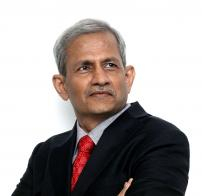[The Zaporizhzhia Nuclear Power Plant in Ukraine is the biggest nuclear power station in Europe. It is currently occupied by Russia. Photo by Ralf1969 - Own work, CC BY-SA 3.0, via Wikimedia]
Through December, we will publish a series of essays that offer fresh insight into the Events That Shaped Our World in 2023. You can follow the series here.
In January 2023, the Bulletin of Atomic Scientists set the Doomsday Clock at 90 seconds to midnight, where midnight symbolises the end of humanity in a global nuclear war. In August the nuclear non-proliferation review conference failed. In December, the test ban treaty collapsed.
Meanwhile, the Ukraine war continued to rage. A war between Israel and Hamas threatened to devour the Middle East. Civil strife in Syria, Libya and Yemen continued. These wars would destabilise the world, but not end it.
The existential threat to human civilization stems from the growing nexus between artificial intelligence, nuclear weapons, and biotechnology. Artificial intelligence enables hypersonic missiles to determine their own trajectory, making them invisible to radars; it also empowers underwater unmanned vehicles carrying nuclear warheads. A deadly combination of AI and cyber-technology can manipulate nuclear early warning systems and trigger accidental nuclear war.
If a global nuclear war threatens sudden collective death of our species in a planetary heart attack, climate change is like cancer. It is rendering our existence difficult with floods, drought, heat waves, forest fires, and loss of biodiversity. A snowstorm in Europe prevented many leaders from travelling in their private jets to UAE for COP 28 in December 2023 to discuss how to reduce emissions. While we saw the world recovering from Covid-19 in 2023, there is a lurking fear of another pandemic which could be ten times as dangerous. It will paralyse human civilization.
A small hope was provided by an agreement between Presidents Joe Biden and Xi Jinping at the end of the year on military cooperation and artificial intelligence. Since details are shrouded in secrecy, it is difficult to assess the prospects.
In January 2024, the Bulletin of Atomic Scientists will set the Doomsday Clock again. If they freeze it at 90 seconds, it would mean that the world’s leading scientists who form the Bulletin’s scientific board have faith in the Biden-Xi agreement. If they move the clock forward, we will have only one minute to midnight.
The next question in this series:
Caught between the left and right, antisemitism and Islamophobia, accepting asylum seekers and pushing back boats, where will the pendulum of European political thinking rest?
On Wednesday, December 13, we will publish Sir Graham Watson's take. He is Distinguished Visiting Fellow at University of Toronto - Munk School of Global Affairs & Public Policy.

